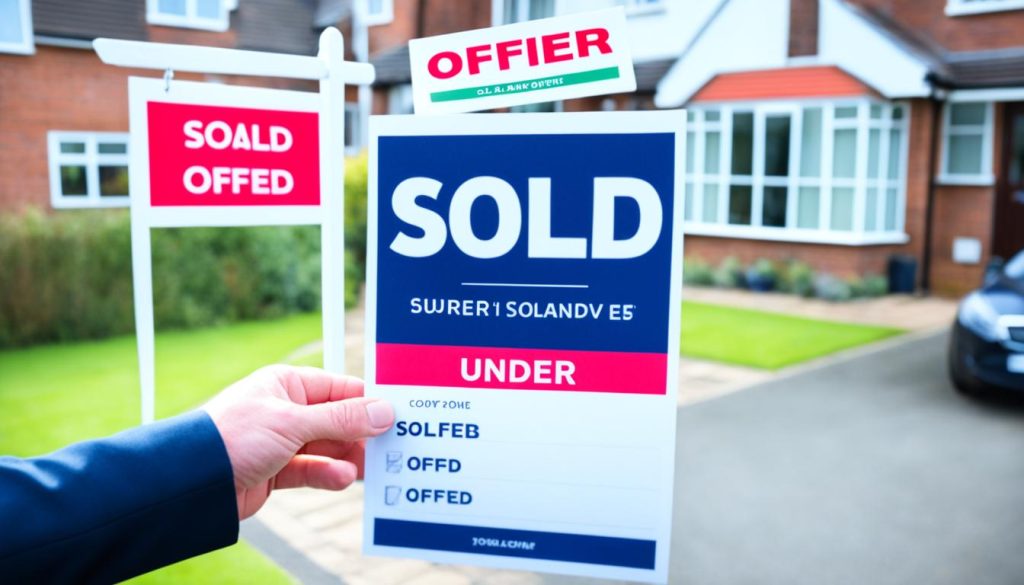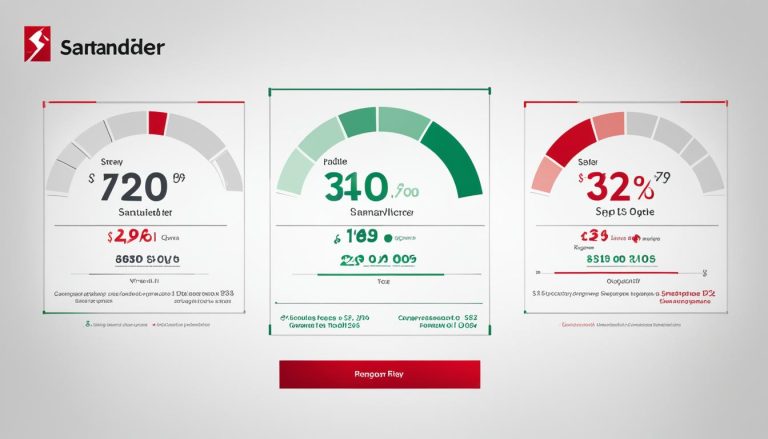Have you ever wondered why some properties suddenly disappear from the market, even after an offer has been accepted? The decision to remove a listing is a complex one, often driven by a variety of factors. In this article, we’ll delve into the intricacies of when and why estate agents in the UK may take a property off the market, shedding light on a process that is not always as straightforward as it may seem.
One of the most common questions buyers and sellers have is: What triggers an estate agent to delist a property? From legal obligations to personal circumstances, the reasons behind this decision can be multifaceted. Join us as we explore the world of property delisting and uncover the protocols, policies, and best practices that govern this often misunderstood aspect of the UK real estate market.
Understanding Property Delisting by Estate Agents
When it comes to the property market in the UK, the decision to remove a listing from the market often lies in the hands of the seller, even after an offer has been accepted. The first source explains that there are no legal obligations for the seller to take the property off the market once an offer has been accepted. This means that the seller retains the discretion to continue marketing the property, even if the buyer is in a strong position to proceed with the purchase.
Legal Obligations After Offer Acceptance
Contrary to popular belief, the seller is not required by law to delist the property from the market once an offer has been accepted. This can be a source of frustration for buyers, who may have hoped that the property would be taken off the market as a sign of the seller’s commitment to the transaction.
Seller’s Discretion on Market Withdrawal
The decision to remove the property listing remains at the seller’s discretion, even if the buyer is ready to move forward with the purchase. This can create a sense of uncertainty for the buyer, who may be concerned about the risk of “gazumping” – where another party makes a higher offer and the seller accepts it.
Requesting Property Removal and Cancelling Viewings
To address this issue, the source advises that the buyer can and should proactively request for the property to be taken off the market and for any future viewings to be cancelled. This request can be made either as a condition of the offer or after the offer has been accepted. The estate agent will typically require details of the buyer’s conveyancing solicitor and mortgage in principle before actioning this request.

Reasons for Removing Listings
There are several common reasons why a seller may choose to take their property off the market, according to the third source. One prevalent factor is if the property has been listed for an extended period without receiving any offers, typically 60 to 90 days. This prolonged period on the market can indicate that the property on market for too long and may require a reassessment of the pricing or marketing strategy.
Overpriced Listing
Another common reason for removing a listing is if the overpriced listing has failed to generate sufficient interest from potential buyers. In such cases, taking the property off the market can provide the seller with an opportunity to re-evaluate the asking price and make necessary adjustments before relisting the property.
Needed Improvements or Better Marketing
Additionally, the source suggests that a property may be taken off the market if it requires needed improvements or better marketing to make it more appealing to buyers. This could involve carrying out renovations, staging the property, or implementing a more effective marketing campaign. By taking the property off the market, the seller can focus on addressing these issues before relisting it.
In all these scenarios, the source advises that removing the property from the market can give the seller valuable time to reassess the situation and implement the necessary changes before relisting the property.

When Do Estate Agents Take Property Off Market?
The decision to remove a property from the market can be influenced by a variety of factors, according to the third source. Two common scenarios when a seller may choose to take their property off the market are if they decide to switch to a different estate agent or if their personal circumstances change.
Switching to a Different Estate Agent
Sellers may opt to delist their property if they are dissatisfied with the performance of their current estate agent and wish to engage a new one. This could be due to perceived issues with the marketing approach, a lack of buyer engagement, or simply a desire to try a different agent’s strategy. In such cases, the source advises that the seller should discuss the need to remove the listing with their current agent, as many may be willing to waive any early termination fees given the changed circumstances.
Personal Circumstances Changing
A seller’s personal situation can also prompt the decision to take a property off the market. This could be triggered by a job opportunity falling through, a family illness or bereavement, or a change in their financial circumstances. The source recommends that the seller should again communicate openly with their estate agent about the need to delist the property, as agents may often be sympathetic and flexible when presented with such personal changes.

Estate Agent Listing Withdrawal Policies
When it comes to taking a property off the market, estate agents and sellers must carefully consider the contractual obligations and termination fees involved. The third source cautions that sellers should think critically before delisting their property, as it could potentially result in financial losses, especially if they are already in the process of a transaction with a buyer.
Contractual Obligations and Termination Fees
Before deciding to withdraw a property listing, it is crucial for sellers to review their contract with the current estate agent. Many agencies have specific market withdrawal policies that outline the terms and conditions for property listing termination by agents. These may include provisions for contract obligations and termination fees that the seller would be responsible for if they choose to delist the property.
Market Conditions and Seasonal Factors
The decision to withdraw a property from the market should also take into account the current market conditions and seasonal factors. Certain times of the year, such as the summer or holiday periods, may see a slowdown in buyer activity. Delisting during these periods could make it more challenging to relist and attract new interest when the market is more active.

| Reason for Withdrawal | Potential Contractual Obligations | Termination Fees |
|---|---|---|
| Switching to a Different Estate Agent | Remaining duration of the original contract | Typically 1-2 months’ worth of commission |
| Personal Circumstances Changing | Dependent on the agent’s policies | May be waived or reduced due to changed circumstances |
| Market Conditions or Seasonal Factors | Dependent on the agent’s policies | Dependent on the agent’s policies |
Property Delisting Procedures
When a buyer’s offer is accepted, it’s crucial for them to take immediate action to secure the purchase and prevent the seller from continuing to market the property. The estate agent delisting procedures outline the steps the buyer should follow to ensure a smooth and efficient process.
Providing Confirmation and Documentation
The first step is for the buyer to provide the estate agent with confirmation of their financial readiness. This typically involves sharing details of their mortgage in principle or proof of funds, demonstrating their ability to proceed with the property market exit by agents. The estate agent will then require the buyer to instruct a solicitor to handle the legal formalities of the transaction.
Instructing a Solicitor and Arranging Surveys
Once the buyer has instructed a solicitor, the next step is to arrange for a survey of the property. This providing confirmation and documentation step is essential to ensure the buyer is fully informed about the condition of the property before committing to the purchase. The buyer should work closely with their solicitor and the estate agent to coordinate these important actions, demonstrating their readiness and instructing a solicitor and arranging surveys to complete the transaction.
Protecting Against Gazumping
When purchasing a property in the UK, one of the biggest risks buyers face is the practice of “gazumping”. This occurs when another party makes a higher offer on a property that a buyer is in the process of purchasing, and the seller accepts the higher offer. This can be a frustrating and financially damaging experience for the original buyer.
Understanding Gazumping Risks
The risk of gazumping highlights the importance of taking proactive measures to protect your property purchase. Gazumping can happen at any stage of the buying process, even after an offer has been accepted, if the property remains listed on the market. This is why taking the property off the market can be an effective way to prevent gazumping and ensure your purchase goes through.
Homebuyer Protection Insurance
Another option for buyers to consider is homebuyer protection insurance. This type of insurance can provide financial coverage if a seller decides to accept a higher offer, helping to mitigate the costs associated with a failed transaction. While not a complete solution, homebuyer protection insurance can offer valuable peace of mind during the buying process.
Pre-Contract Deposit Considerations
In addition to insurance, buyers should also carefully consider the implications of pre-contract deposits. These deposits, often required by estate agents or sellers, can help demonstrate a buyer’s commitment and seriousness, potentially deterring sellers from accepting higher offers. However, buyers should ensure they fully understand the terms and conditions of any pre-contract deposits before proceeding.

Conclusion
In summary, the decision to remove a property from the market ultimately lies with the seller, even after an offer has been accepted. There are no legal obligations for the seller to delist the property, and the estate agent market withdrawal policies may vary. The property delisting by estate agents can be initiated by the seller for various reasons for removing listings, such as the property being on the market for too long, an overpriced listing, or the need for improvements or better marketing.
Buyers should be proactive in requesting property removal and cancelling viewings to protect against the risks of gazumping. Understanding the estate agent delisting procedures and agent protocols for ending listings is crucial, as there may be contractual obligations and termination fees involved in the property market exit by agents.
Ultimately, the when do estate agents take property off market decision is influenced by a range of factors, including estate agent listing withdrawal policies and estate agent listing expiry guidelines. By being aware of these considerations, both sellers and buyers can navigate the process of property delisting by estate agents more effectively.
FAQ
What are the legal obligations for the seller to take a property off the market after an offer has been accepted?
According to the sources, there are no legal obligations for the seller to take a property off the market after an offer has been accepted. The decision to remove the listing remains at the seller’s discretion.
Can the buyer request for the property to be taken off the market?
Yes, the buyer can request for the property to be taken off the market as a condition of their offer or after the offer has been accepted. The estate agent will typically require details of the buyer’s conveyancing solicitor and mortgage in principle before actioning this request.
What are some common reasons why a seller may want to take their property off the market?
Common reasons include if the property has been listed for an extended period without any offers (typically 60-90 days), the asking price is unrealistic, or the property requires improvements or better marketing to make it more appealing to buyers. Sellers may also want to delist if they decide to switch to a different estate agent or if their personal circumstances change.
What should a buyer do after their offer has been accepted?
The sources suggest that after an offer has been accepted, the buyer should promptly provide confirmation of their financial readiness, instruct a solicitor, and arrange a survey. This can help prevent the seller from continuing to market the property.





